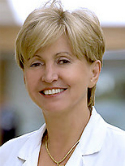| Abstract: |
Background: In addition to increased availability of treatment modalities, advanced imaging modalities are increasingly recommended to improve global cancer care. However, estimates of the costs and benefits of investments to improve cancer survival are scarce, especially for low-income and middle-income countries (LMICs). In this analysis, we aimed to estimate the costs and lifetime health and economic benefits of scaling up imaging and treatment modality packages on cancer survival, both globally and by country income group. Methods: Using a previously developed model of global cancer survival, we estimated stage-specific cancer survival and life-years gained (accounting for competing mortality) in 200 countries and territories for patients diagnosed with one of 11 cancers (oesophagus, stomach, colon, rectum, anus, liver, pancreas, lung, breast, cervix uteri, and prostate) representing 60% of all cancer diagnoses between 2020 and 2030 (inclusive of full years). We evaluated the costs and health and economic benefits of scaling up packages of treatment (chemotherapy, surgery, radiotherapy, and targeted therapy), imaging modalities (ultrasound, x-ray, CT, MRI, PET, single-photon emission CT), and quality of care to the mean level of high-income countries, separately and in combination, compared with no scale-up. Costs and benefits are presented in 2018 US$ and discounted at 3% annually. Findings: For the 11 cancers studied, we estimated that without scale-up (ie, with current availability of treatment, imaging, and quality of care) there will be 76·0 million cancer deaths (95% UI 73·9–78·6) globally for patients diagnosed between 2020 and 2030, with more than 70% of these deaths occurring in LMICs. Comprehensive scale-up of treatment, imaging, and quality of care could avert 12·5% (95% UI 9·0–16·3) of these deaths globally, ranging from 2·8% (1·8–4·3) in high-income countries to 38·2% (32·6–44·5) in low-income countries. Globally, we estimate that comprehensive scale-up would cost an additional $232·9 billion (95% UI 85·9–422·0) between 2020 and 2030 (representing a 6·9% increase in cancer treatment costs), but produce $2·9 trillion (1·8–4·0) in lifetime economic benefits, yielding a return of $12·43 (6·47–33·23) per dollar invested. Scaling up treatment and quality of care without imaging would yield a return of $6·15 (2·66–16·71) per dollar invested and avert 7·0% (3·9–10·3) of cancer deaths worldwide. Interpretation: Simultaneous investment in cancer treatment, imaging, and quality of care could yield substantial health and economic benefits, especially in LMICs. These results provide a compelling rationale for the value of investing in the global scale-up of cancer care. Funding: Harvard TH Chan School of Public Health and National Cancer Institute. © 2021 Elsevier Ltd |




